Disaster Response & Emergency Management

Planning and zoning: very high fire hazard areas.
Requires cities to develop comprehensive wildfire retrofit strategies for high-risk areas by January 2026. Establishes a state clearinghouse of wildfire safety best practices and local policies by January 2027. Mandates regular updates to city safety plans to include new wildfire protection measures. Requires cities to map high-risk fire zones and create specific protection policies for these areas.
Planning and zoning: very high fire hazard areas.

Requires cities to develop comprehensive wildfire retrofit strategies for high-risk areas by January 2026. Establishes a state clearinghouse of wildfire safety best practices and local policies by January 2027. Mandates regular updates to city safety plans to include new wildfire protection measures. Requires cities to map high-risk fire zones and create specific protection policies for these areas.
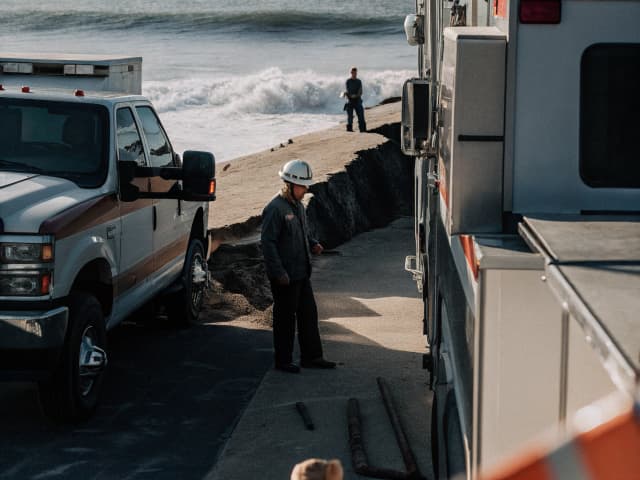
Coastal resources: coastal development permit: exemption: Los Angeles-San Diego-San Luis Obispo Rail Corridor.
Exempts emergency railroad repairs along the LA-San Diego-San Luis Obispo Rail Corridor from coastal development permits. Requires agencies to notify the Coastal Commission within 14 days of starting emergency repair work. Applies only to repairs within one year of damage from natural disasters or earth movement. Prohibits exemptions for expanding rail facilities or constructing new shoreline structures.
Coastal resources: coastal development permit: exemption: Los Angeles-San Diego-San Luis Obispo Rail Corridor.

Exempts emergency railroad repairs along the LA-San Diego-San Luis Obispo Rail Corridor from coastal development permits. Requires agencies to notify the Coastal Commission within 14 days of starting emergency repair work. Applies only to repairs within one year of damage from natural disasters or earth movement. Prohibits exemptions for expanding rail facilities or constructing new shoreline structures.

Employee stock ownership plans: contractors: certification: bid preferences.
Establishes a new certification program for employee-owned construction contractors starting January 2027. Provides bid preferences of 2-4% for certified contractors based on their employee ownership percentage. Grants an additional 1% bid preference to certified contractors with unionized employees. Creates a state hub to support and promote employee-owned businesses through education and resources.
Employee stock ownership plans: contractors: certification: bid preferences.

Establishes a new certification program for employee-owned construction contractors starting January 2027. Provides bid preferences of 2-4% for certified contractors based on their employee ownership percentage. Grants an additional 1% bid preference to certified contractors with unionized employees. Creates a state hub to support and promote employee-owned businesses through education and resources.

Small businesses: certification.
Undeveloped "intent bill" that aims to streamline business certification processes in California. Proposes training requirements to help entrepreneurs operate successful small businesses.
Small businesses: certification.

Undeveloped "intent bill" that aims to streamline business certification processes in California. Proposes training requirements to help entrepreneurs operate successful small businesses.
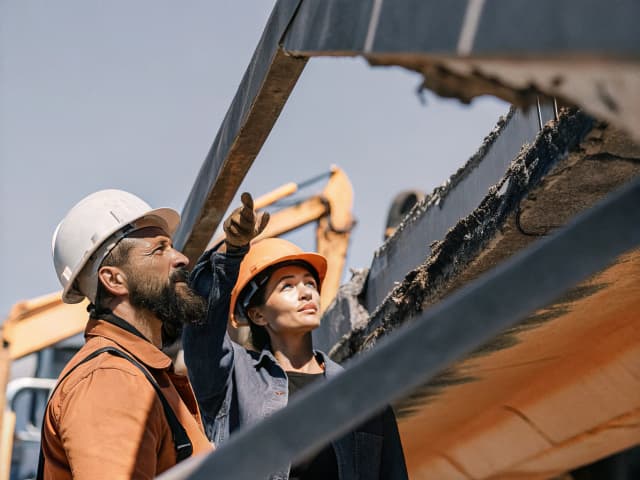
Transportation: climate resiliency: projects of statewide and regional significance.
Requires Caltrans to annually prioritize multi-county highway projects for climate resilience. Requires Caltrans to begin annual prioritization by July 1, 2026, for projects at planning or later. Requires initial report by January 1, 2027, and annual updates. Does not authorize new funding; oversight rests with the Legislature.
Transportation: climate resiliency: projects of statewide and regional significance.

Requires Caltrans to annually prioritize multi-county highway projects for climate resilience. Requires Caltrans to begin annual prioritization by July 1, 2026, for projects at planning or later. Requires initial report by January 1, 2027, and annual updates. Does not authorize new funding; oversight rests with the Legislature.

Governor’s Office of Business and Economic Development: California Competes Grant Program.
Extends the California Competes Grant Program for job creation and business investment through January 2031. Maintains GO-Biz's authority to provide economic development grants for an additional year. Requires no new funding appropriations to extend the existing grant program.
Governor’s Office of Business and Economic Development: California Competes Grant Program.

Extends the California Competes Grant Program for job creation and business investment through January 2031. Maintains GO-Biz's authority to provide economic development grants for an additional year. Requires no new funding appropriations to extend the existing grant program.

Consumer credit report: sale of property: natural disasters.
Prohibits credit agencies from reporting property sales forced by natural disasters that made homes uninhabitable. Prevents lenders from using disaster-related property sales as a negative factor in credit decisions. Expands existing credit reporting protections that already cover medical debt and certain legal matters.
Consumer credit report: sale of property: natural disasters.

Prohibits credit agencies from reporting property sales forced by natural disasters that made homes uninhabitable. Prevents lenders from using disaster-related property sales as a negative factor in credit decisions. Expands existing credit reporting protections that already cover medical debt and certain legal matters.

Emergency services: catastrophic plans: recovery frameworks.
Requires state and local agencies to develop disaster recovery frameworks for catastrophic events by January 2027. Mandates incorporation of six key recovery areas including housing, infrastructure, and economic recovery. Provides technical assistance and federal grant funding to offset framework development costs. Takes immediate effect to enhance California's preparedness for wildfires, earthquakes, and floods.
Emergency services: catastrophic plans: recovery frameworks.

Requires state and local agencies to develop disaster recovery frameworks for catastrophic events by January 2027. Mandates incorporation of six key recovery areas including housing, infrastructure, and economic recovery. Provides technical assistance and federal grant funding to offset framework development costs. Takes immediate effect to enhance California's preparedness for wildfires, earthquakes, and floods.
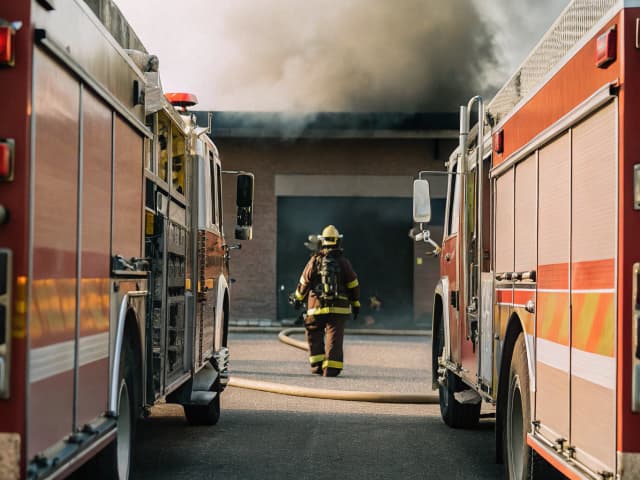
Office of Emergency Services: firefighting mutual aid.
Establishes a new Firefighting Mutual Aid Program to coordinate emergency response between fire agencies. Creates a reimbursement system for fire agencies that provide mutual aid during emergencies. Supports the sharing of fire engines and equipment between local departments during emergencies. Funds additional firefighting resources including mobile water systems and protective equipment.
Office of Emergency Services: firefighting mutual aid.

Establishes a new Firefighting Mutual Aid Program to coordinate emergency response between fire agencies. Creates a reimbursement system for fire agencies that provide mutual aid during emergencies. Supports the sharing of fire engines and equipment between local departments during emergencies. Funds additional firefighting resources including mobile water systems and protective equipment.
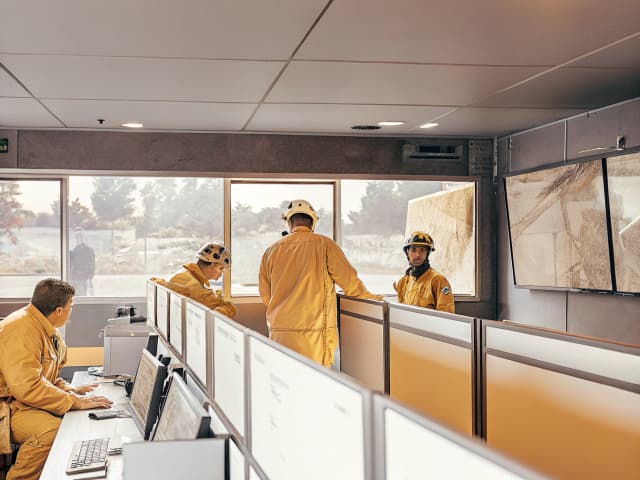
Emergency Management Assistance Compact.
Makes technical changes to provisions regarding the Emergency Management Assistance Compact.
Emergency Management Assistance Compact.

Makes technical changes to provisions regarding the Emergency Management Assistance Compact.

Emergency services: disaster preparedness.
Requires OES to convene biennial tabletop exercises with broad sector participation. Requires exercises to base on four disaster plans and meet at least four objectives. Requires OES report by Feb 1, 2028, and biennially thereafter, with costs offset by federal funds. Requires annual CERT training in vulnerable regions, prioritizing notification testing.
Emergency services: disaster preparedness.

Requires OES to convene biennial tabletop exercises with broad sector participation. Requires exercises to base on four disaster plans and meet at least four objectives. Requires OES report by Feb 1, 2028, and biennially thereafter, with costs offset by federal funds. Requires annual CERT training in vulnerable regions, prioritizing notification testing.
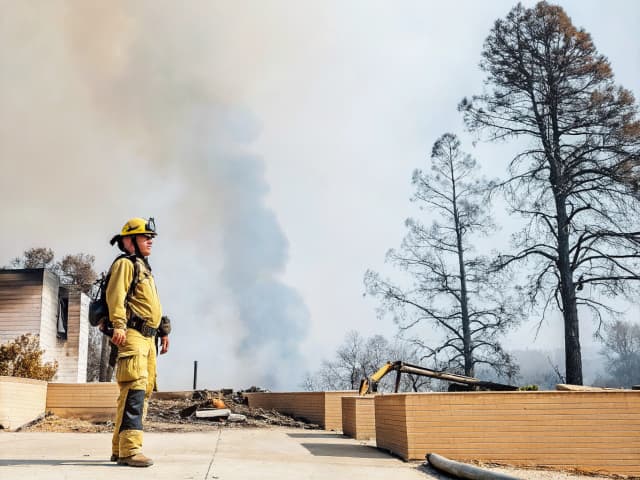
Real property impacted by the 2025 Eaton or Palisades Fires: notification of owner’s intent to sell.
Establishes a system for fire-impacted property owners in Los Angeles County to notify qualified buyers of intent to sell. Requires Los Angeles County to maintain a public list of approved nonprofit and government property buyers. Aims to prevent community displacement by prioritizing sales to organizations focused on affordable housing. Expires six years after the end of the declared emergency period for the 2025 Eaton and Palisades Fires.
Real property impacted by the 2025 Eaton or Palisades Fires: notification of owner’s intent to sell.

Establishes a system for fire-impacted property owners in Los Angeles County to notify qualified buyers of intent to sell. Requires Los Angeles County to maintain a public list of approved nonprofit and government property buyers. Aims to prevent community displacement by prioritizing sales to organizations focused on affordable housing. Expires six years after the end of the declared emergency period for the 2025 Eaton and Palisades Fires.
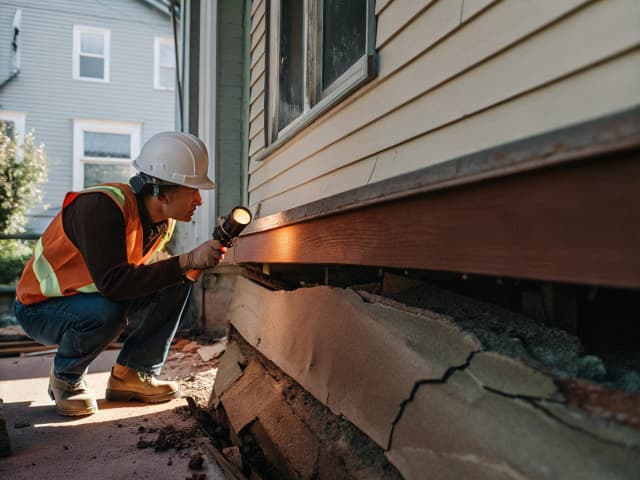
Department of Consumer Affairs and Department of Real Estate: states of emergency: waivers and exemptions.
Establishes disaster-time license waivers to aid affected licensees. Authorizes waivers to take effect after five-day director review and posting. Extends waivers through the emergency and blocks below-FMV offers for one year. Expands debris-removal licensing, requires hazardous-substance certification and email addresses.
Department of Consumer Affairs and Department of Real Estate: states of emergency: waivers and exemptions.

Establishes disaster-time license waivers to aid affected licensees. Authorizes waivers to take effect after five-day director review and posting. Extends waivers through the emergency and blocks below-FMV offers for one year. Expands debris-removal licensing, requires hazardous-substance certification and email addresses.

State of emergency and local emergency: landslides and climate change.
Expands local emergencies to include deenergization events. Adds deenergization as a local-emergency trigger alongside landslides and other hazards. Clarifies that deenergization local emergencies do not trigger utility obligations or alter cost recovery. Creates no new appropriation.
State of emergency and local emergency: landslides and climate change.

Expands local emergencies to include deenergization events. Adds deenergization as a local-emergency trigger alongside landslides and other hazards. Clarifies that deenergization local emergencies do not trigger utility obligations or alter cost recovery. Creates no new appropriation.
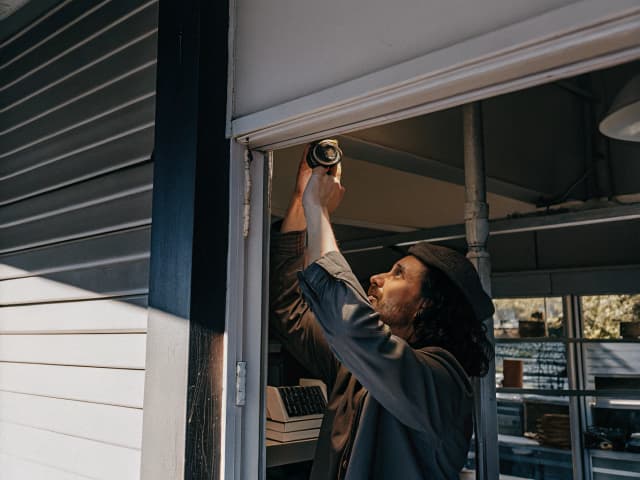
Small Business Retail Theft Solutions Grant Program.
Establishes a new grant program to help small businesses prevent and recover from retail theft. Requires the Office of Small Business Advocate to manage the grant program and distribute funds. Mandates consultation with local, state, and federal entities to support small business needs. Requires legislative funding approval before grants can be distributed to small businesses.
Small Business Retail Theft Solutions Grant Program.

Establishes a new grant program to help small businesses prevent and recover from retail theft. Requires the Office of Small Business Advocate to manage the grant program and distribute funds. Mandates consultation with local, state, and federal entities to support small business needs. Requires legislative funding approval before grants can be distributed to small businesses.

District elections: initiatives.
Authorizes districts with transportation tax authority to enact a retail tax by initiative. Requires the initiative to stay within the maximum rate and include a transportation expenditure plan with accountability. May create state-mandated local costs for county elections with reimbursement rules.
District elections: initiatives.

Authorizes districts with transportation tax authority to enact a retail tax by initiative. Requires the initiative to stay within the maximum rate and include a transportation expenditure plan with accountability. May create state-mandated local costs for county elections with reimbursement rules.

Office of Emergency Services: training: transnational repression.
Requires OES to develop a transnational repression training by January 2027. Establishes CSTI shall develop the training in consultation with POST. Requires six topics, including tactics, targeted communities, and federal guidance. Provides no funding or mandate; delivery format unknown; First Amendment rights preserved.
Office of Emergency Services: training: transnational repression.

Requires OES to develop a transnational repression training by January 2027. Establishes CSTI shall develop the training in consultation with POST. Requires six topics, including tactics, targeted communities, and federal guidance. Provides no funding or mandate; delivery format unknown; First Amendment rights preserved.

Small Business Advocate.
Makes technical changes to provisions describing the duties of the Small Business Advocate.
Small Business Advocate.

Makes technical changes to provisions describing the duties of the Small Business Advocate.

Governor’s Office of Emergency Services: California Alert.
Establishes California Alert, a new statewide emergency alert system that works with federal wireless alerts. Requires the state to contract with private vendors to send alerts to registered non-location-based phones. Maintains local governments as primary emergency alert issuers with California Alert serving as backup. Mandates new standards for sending emergency alerts across different jurisdictional boundaries.
Governor’s Office of Emergency Services: California Alert.

Establishes California Alert, a new statewide emergency alert system that works with federal wireless alerts. Requires the state to contract with private vendors to send alerts to registered non-location-based phones. Maintains local governments as primary emergency alert issuers with California Alert serving as backup. Mandates new standards for sending emergency alerts across different jurisdictional boundaries.

State government: emergency services: nonprofit service providers.
Authorizes nonprofit contractors to modify service delivery methods during state emergencies with agency approval. Requires nonprofits to document and justify all expenses related to program closures or service reductions. Guarantees state funding for contracted services even when programs are canceled or reduced during emergencies. Allows nonprofits to request contract flexibility during non-emergency disruptions subject to agency approval.
State government: emergency services: nonprofit service providers.

Authorizes nonprofit contractors to modify service delivery methods during state emergencies with agency approval. Requires nonprofits to document and justify all expenses related to program closures or service reductions. Guarantees state funding for contracted services even when programs are canceled or reduced during emergencies. Allows nonprofits to request contract flexibility during non-emergency disruptions subject to agency approval.

Beverage containers: recycled glass: market development.
Raises the glass market payment cap to $150 per ton and sunsets by 2030. Requires in-state collection, washing, and manufacturing to qualify. Establishes two funding paths and requires an advisory committee for the education campaign. Imposes a 90-day deadline for local funding requests and may withhold funds for supermarket siting.
Beverage containers: recycled glass: market development.

Raises the glass market payment cap to $150 per ton and sunsets by 2030. Requires in-state collection, washing, and manufacturing to qualify. Establishes two funding paths and requires an advisory committee for the education campaign. Imposes a 90-day deadline for local funding requests and may withhold funds for supermarket siting.
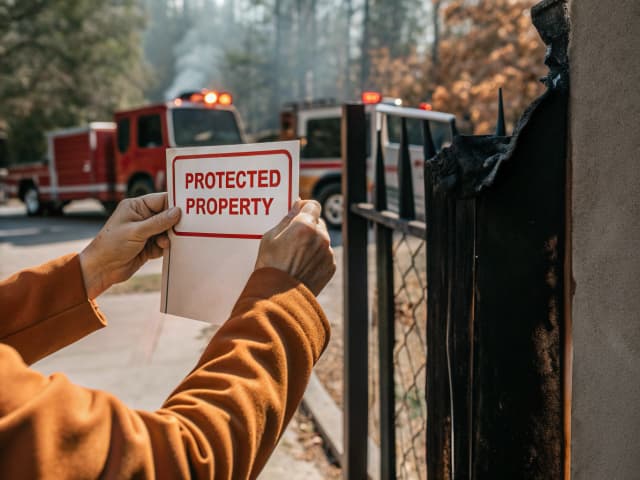
Real property transactions: Counties of Los Angeles and Ventura wildfires: unsolicited offers.
Establishes a temporary ban on unsolicited offers in LA/Ventura wildfire ZIP Codes. Requires signed attestation by buyer and seller and recording with the deed. Allows civil actions with up to $25,000 per violation and a misdemeanor penalty. Operative 30 days after enactment; sunset Jan 1, 2027; contingent on SB 641.
Real property transactions: Counties of Los Angeles and Ventura wildfires: unsolicited offers.

Establishes a temporary ban on unsolicited offers in LA/Ventura wildfire ZIP Codes. Requires signed attestation by buyer and seller and recording with the deed. Allows civil actions with up to $25,000 per violation and a misdemeanor penalty. Operative 30 days after enactment; sunset Jan 1, 2027; contingent on SB 641.
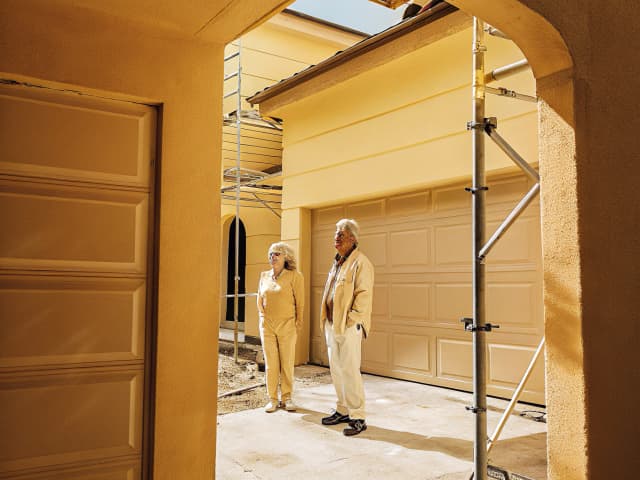
Permit Streamlining Act: local emergencies.
Expedites 10-day permits for modular, prefab, and detached-ADU housing after safety is confirmed. Requires local agencies to approve or deny complete applications within 10 days for these permits. Requires utility providers to notify next steps within 30 days of a connection request. Establishes public information duties with a substandard checklist and dashboards for larger cities.
Permit Streamlining Act: local emergencies.

Expedites 10-day permits for modular, prefab, and detached-ADU housing after safety is confirmed. Requires local agencies to approve or deny complete applications within 10 days for these permits. Requires utility providers to notify next steps within 30 days of a connection request. Establishes public information duties with a substandard checklist and dashboards for larger cities.
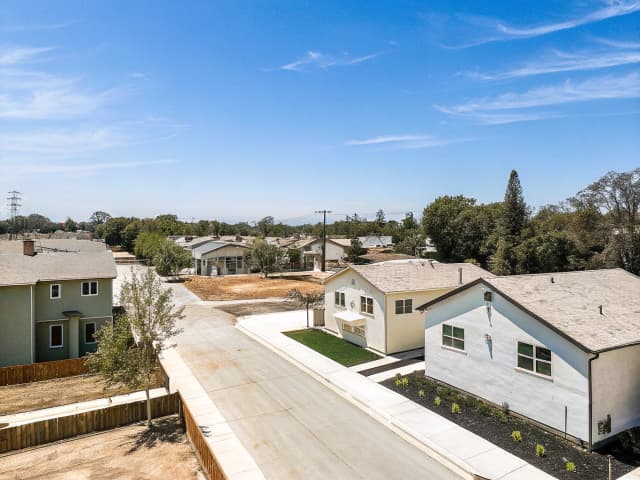
Community Stabilization Act: Counties of Los Angeles and Ventura.
Creates the Community Stabilization Act to stabilize disaster-impacted housing. Creates a tradable, non-interest security funded by CRA investments. Holds properties up to seven years and prioritizes owner occupancy in sales.
Community Stabilization Act: Counties of Los Angeles and Ventura.

Creates the Community Stabilization Act to stabilize disaster-impacted housing. Creates a tradable, non-interest security funded by CRA investments. Holds properties up to seven years and prioritizes owner occupancy in sales.
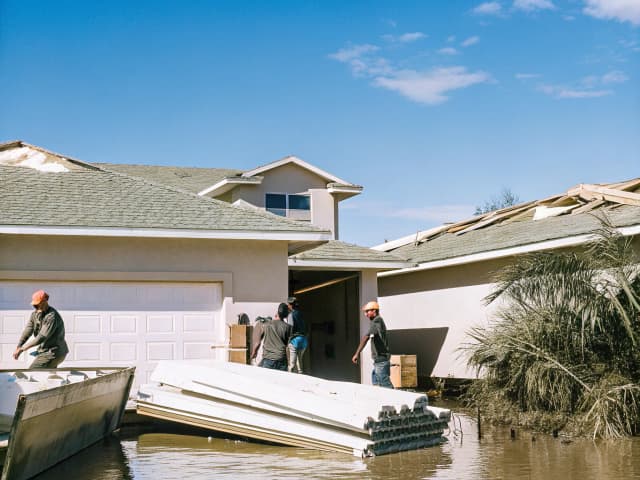
Public contracts: construction materials: disaster relief.
Authorizes the state to negotiate bulk purchases of construction materials for rebuilding after natural disasters. Requires materials to be sold at cost to homeowners and contractors in disaster-affected areas. Prioritizes sustainable and locally sourced building materials when possible. Expires on January 1, 2031 unless extended by future legislation.
Public contracts: construction materials: disaster relief.

Authorizes the state to negotiate bulk purchases of construction materials for rebuilding after natural disasters. Requires materials to be sold at cost to homeowners and contractors in disaster-affected areas. Prioritizes sustainable and locally sourced building materials when possible. Expires on January 1, 2031 unless extended by future legislation.